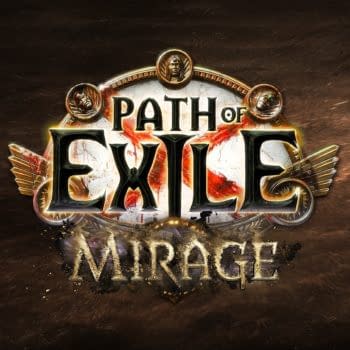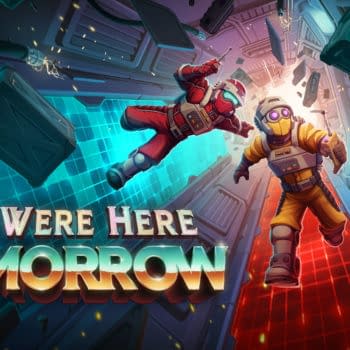Posted in: Games, Review, Video Games | Tagged: game review, Mind's Eclipse Interactive, Steam, The Mind's Eclipse
The Mind's Eclipse is a Reality-bending Thought Experiment in Video Game Form
The Mind's Eclipse is a reality-bending point and click mystery game, and despite the simplistic gameplay, black and white visuals, and limited controls it manages to tell an incredibly captivating story. You've got two main story paths you can take, though they only branch out toward the end of the game. If you save or go back and load from an autosave, it's pretty easy to just go back to the decision point and see the alternate ending. But really, the game runs for about three and a half hours if you go through each and every possible room, clicking on each available piece of decor for information. You can breeze through the game in about half that, maybe less if you're truly dedicated to brute-forcing your way through.
The setup is pretty simple. You wake up in a hospital room with no knowledge of who you are, where you are, or what you're doing. Very quickly you start having interactions with an AI named L who claims to be responsible for your sudden wake-up call. She also claims responsibility for letting you see through use of your BOSy implant. You and L venture out into the hospital, which is filled with corpses and slowly running out of oxygen. You attempt to have a look around and find out what is going on, as neither you nor L have any clue. Your first task is to navigate around the hospital, hopefully to find a way out. In the mean time, you get to gather some clues as to who you are and what exactly went on.
The black and white art style would get to be a bit tedious after a while, except there's so much detail in the hand-drawn artwork that it really isn't a drag. You do get to see in color for about a solid two minutes if you go along with a side adventure into a VR pod, which gives you an interesting view of L. It also unlocks an achievement. If I'm being completely honest, I prefer the game in black and white. It seems more detailed somehow.
Honestly, it's pretty easy to rack up a ton of achievements in this game, simply by clicking your way around and it won't take up too much of your time to do so. Honestly, if you're a completionist, this game is pretty quick and very satisfying to 100%. Won't take you more than a run or two to do so.
And each thing you click on gives you more insight to what went on while you were unconscious which is something of a fascinating mystery.
Mostly, I loved playing this game because the ending caused me to sit back, think about my choices and contemplate a few "intro to Philosophy" questions about identity and personhood. It's always nice to get that undergrad thought experiment feel from a video game. The game is designed to make you think, make you contemplate how guilt and regret can change a person even if they don't quite remember who they are. A deeper examination of the repercussions of the game's plot will require spoilers, so if you don't want to know those, I'll wrap up the review here. For plot spoilers, you can continue on below the big spoiler warning.
The Mind's Eclipse is a gripping mystery with a very, very good heart at the center of it all. If you don't ask much in the way of gameplay, it is an absolute wonder to go through. The game is very much a playable choose-your-own-adventure story, as you do have a decision point to make late in the game. It is an interactive story at its absolute best. At its worst, The Mind's Eclipse is a bit too fond of giving tons and tons of backstory, but because you find that backstory in pieces it feels less like a monologue and more like a puzzle.
As you meander your way through the hospital and then finally the CORE, a private research station on Europa, you find your identity. You were Jonathan Campbell, a famous doctor. Then you find out that you were a power-crazy technological cult leader who wanted to defeat death after being traumatized by the death of your wife to a disease called only The Sickness. Once your daughter Ellen contracts the same disease, you start to lose your mind even more. You construct an AI called COSy who gathers the information of everyone who lives on the colony. When your daughter dies, you enact your apocalyptic plan which begins to kill the whole colony and save their consciousness in COSy's databanks. They're given a digital afterlife. Meanwhile your biggest detractor mounts a rebellion and attempts to storm the hospital to get to you.
Your daughter, Ellen, survives only as L. Caught between being woman and machine, and mad at you for forcing her into a new existence when she wanted to die, L isn't too happy with you when you meet up at the start of the game. Add in the fact that you had her lover killed, and it becomes obvious that she was the one to blind you in the first place. After being blinded, you fall into a coma.
While you're asleep, the colony continues to die. And soon all of them are part of COSy. You investigate this mystery and it becomes obvious to you, the player, that Jonathan Campbell was the leader of a death cult. Who rose to power on a platform of fear, and who is responsible for the deaths of every single colonist on the CORE.
You're provided with one choice toward the end of the game, to join COSy or to help L destroy COSy and free every single trapped soul stored in COSy's databanks.
So not only do you have the weird identity conflict of L vs Ellen, your daughter versus the series of code that your daughter became, you also have your own identity. L comments a few times in the game that you don't seem quite like her father, like you're someone new. And that's because you are, you may be at the controls of Jonathan Campbell but you aren't a cult leader and often don't respond the way he would to the reality of life on the CORE. So do you look for the peace that Jonathan Campbell desired? The eternal existence with a digital copy of your wife and your daughter? Or do you see your past the way and outsider would and end COSy once and for all?
The game gives you the choice, and while L seems to be very much on the side of killing COSy, you are presented with the choice with very little sense of judgement form the game itself.
Which is absolutely fascinating.
Normally a moral dilemma in a video game has a pretty clear sense of "right" and "wrong." But not here. The Mind's Eclipse allows you to chose and, in many ways, rewards you for each choice. Whether you go on to confront COSy, presumably to your death, or give in and join your digitally re-created wife, you get a post-credits sytle scene of your family. If anything, chosing the the "morally good" option of killing COSy actually nets you a much more somber sequence.
I think I've spent more time analyzing The Mind's Eclipse than I have playing it, and that is the best sign of a great story I could possibly give.


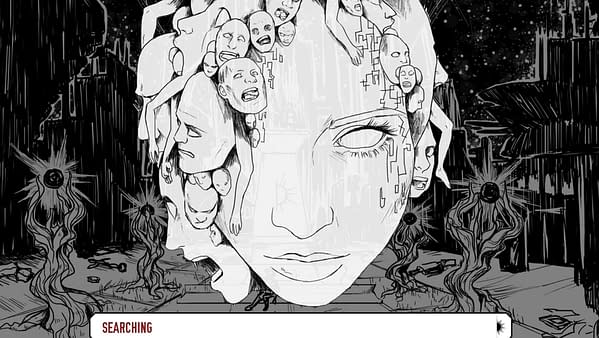
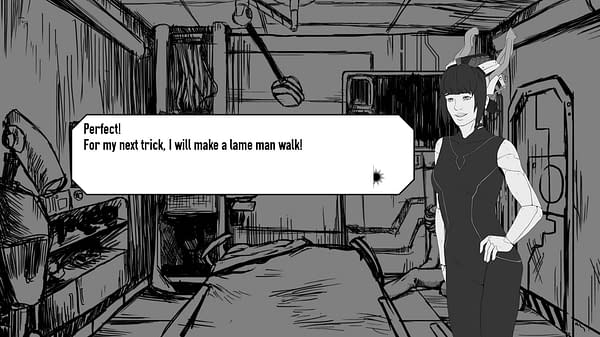
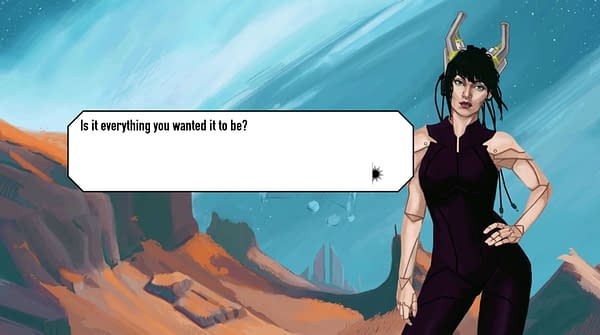



![[REVIEW] "Gang Beasts" is Zany Party Madness](https://mlpnk72yciwc.i.optimole.com/cqhiHLc.IIZS~2ef73/w:350/h:350/q:75/rt:fill/g:ce/https://bleedingcool.com/wp-content/uploads/2019/09/gang-beasts-7-350x350.jpg)
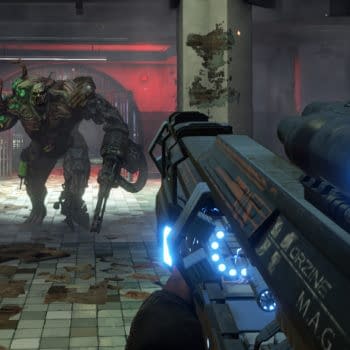
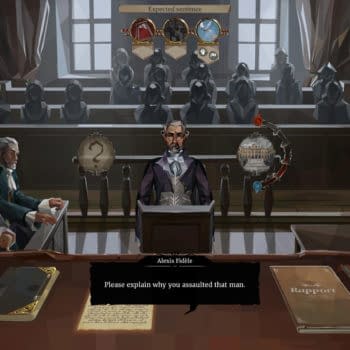


![[REVIEW] "Divinity: Original Sin II" Definitive Edition is Almost Perfect](https://mlpnk72yciwc.i.optimole.com/cqhiHLc.IIZS~2ef73/w:350/h:350/q:75/rt:fill/g:ce/https://bleedingcool.com/wp-content/uploads/2018/08/Divinity-Original-Sin-2-Definitive-Edition-art-350x350.jpg)


